Saleh Malas| Ali Darwish| Khalid Jaraatli| Husam al-Mahmoud
In the past two weeks, Sheikh Jarah neighborhood, in East Jerusalem, made headlines worldwide after a chain of heated protests and security clashes between Palestinians and Israeli police. Palestinians were defending property rights to their neighborhood, jeopardized by a long-running lawsuit filed against families, threatening them with eviction from their own homes built on lands that Israeli settlers are claiming ownership over.
Since 1967, the Israeli occupation has been applying the creeping annexation policy to Palestinian lands. The policy is designed as to annex large swathes of land while keeping the smallest number possible of Arbs within the confiscated lands.
In the absence of a serious international will to end recurrent violations of Palestinians’ rights to their lands and homes, people from around the world expressed solidarity with Shiekh Jarah neighborhood case, which represents a macro-version of the larger Palestinian struggle.
In this extended article, Enab Baladi discusses the viability of popular solidarity with the Palestinian cause with researchers, activists, and analysts, and sheds light on the political investments some governments have been making into the Palestinian struggle.
Taking to streets
Does popular solidarity effect any real changes?
Participating to influence political events ties into social responsibility which is based on the value that individuals or groups allocate to civil activism as a pressure card used to press governments into changing their official positions regarding a certain cause.
In the past two weeks, numerous protests erupted in Palestine in support of the Sheikh Jarah. These protests broke borders and turned international, arriving in Europe and the U.S., ultimately bringing to Palestinians some justice.
In the U.S. thousands of people held up signs demanding an end to Israeli airstrikes on the Gaza strip. Protestors also chanted slogans calling President Joe Biden to cut US funding to Israel.
Similar protests were seen on the streets in several European countries, including France, UK, Germany, and Spain.
However, the value of popular or civil activism is largely government-dependent, changing from one country to another. Syrian sociologist Talal Mustafa told Enab Baladi that solidarity is essential, but it barely achieves any changes in Arab countries “because Arab regimes are allies to Israel.”
He added that pro-Palestine protests would not yield any meaningful changes on the ground, as long as the majority of the people in these countries do not own the ability to make a decision on public issues. He stressed that decision-making is paramount to putting any pressure by the public opinion on governments in the Middle East.
A struggle is an accumulative process
Arab and Western solidarity is important as it emotionally revived the Palestinian cause within nations’ conscience, particularly after Arab regimes, that are linnet towards normalization with the Israeli occupation, thought that the Palestinian concern has died inside their people’s, which have been preoccupied with their own local woes. Solidarity is similarly important as it reignited interest in the Palestinian affair on the levels of media and politics.
Sociologist al-Mustafa said that popular solidarity with the Palestinian cause might bring about meaningful changes in Western countries because public opinion there is one of the factors that intervene to shape or create Western political trends.
He added that, in the case of the Palestinian cause, the results of these popular protests are cumulative. Pro-Palestine means of advocacy serve to demonstrate to the world the forms of daily Israeli hostilities against Palestinians, especially because some individuals are still convinced that what the Palestinians are going through today, whether in the West Bank or Gaza Strip, is arising from the political dispute between the Palestinian Authority (PA) and Hamas. However, the Israeli occupation is the root of the suffering of Palestinians and the core of the problem, and it has been contributing to deepening the Palestinian political rift.
One result of the popular action in Palestine and the world was the Israeli Supreme Court’s decision to delay a session on Sheikh Jarrah. On 9 May, the court postponed the session that could have determined whether Palestinian families in the neighborhood will be evicted after they asked Attorney General Avichai Mandelblit to become a party to the case. The court granted Mandelblit two weeks to consider the matter.
In a statement, the court said that a new date for the session will be determined within the next 30 days. The court decision corresponded to sweeping protests on the ownership rights over the land upon which houses of four Palestinian families are constructed. The land is demanded by a settlement association.
“Past movements did not translate into real actions”
All political past movements did not effect any real changes, Palestinian civil activist Doris Awad told Enab Baladi.
Awad said that the Israeli aggression against Palestinians’ rights is a loop that has not been so far stopped by pressure either governmental or popular. The futility of these movements has turned Palestine into a forcibly stolen land, ready for Israeli colonization time and time again.
“The Arab and international support for Palestine, I do not observe it on the ground; it has not been translated into real actions. What we have been hearing for years is condemnation statements, at best calling in or expelling an ambassador, after which matters fall into normal again until the Israeli occupation authorities have finished their attack against Palestinians. There is also sending some donations,” Awad added.
Awad based her opinion on the normalization wave that “surfaced brazenly earlier on.”
She added that it is due to the Arab regime’s complete oblivion of this cause that “we lost our lands and homeland, many Palestinians were deprived of even visiting Palestine, and life has become mere displacement, eviction, and asylum-seeking.”
Awad stressed that action for the Palestinian cause has practically declined “for the most important thing we did was preserving the narrative, the story of the Palestinian cause. . . . because struggles are accumulative processes passed down from one generation to another.”
Optimism about activism that is “pulsating with justice”
Despite all this, Awad believes that current popular movements “are different from previous times, both internal and external.”
Internally she said, “The whole nation has unified under a single flag, under a single slogan, that is Palestine. There have not been partisan flags or divergent slogans.”
As for external movements, popular action “is very strong, not a mere one-hour protest or rally. It is evident, pulsating with justice. All nations are calling for the liberation of Palestine, ending the shelling on the Gaza Strip, and for the non-eviction of Palestinians from their homes,” she added, priding herself, as a Palestinian, over the Palestinian people’s ability to revive their cause across the world 73 years into their Nakba, catastrophe, as if it just took place.
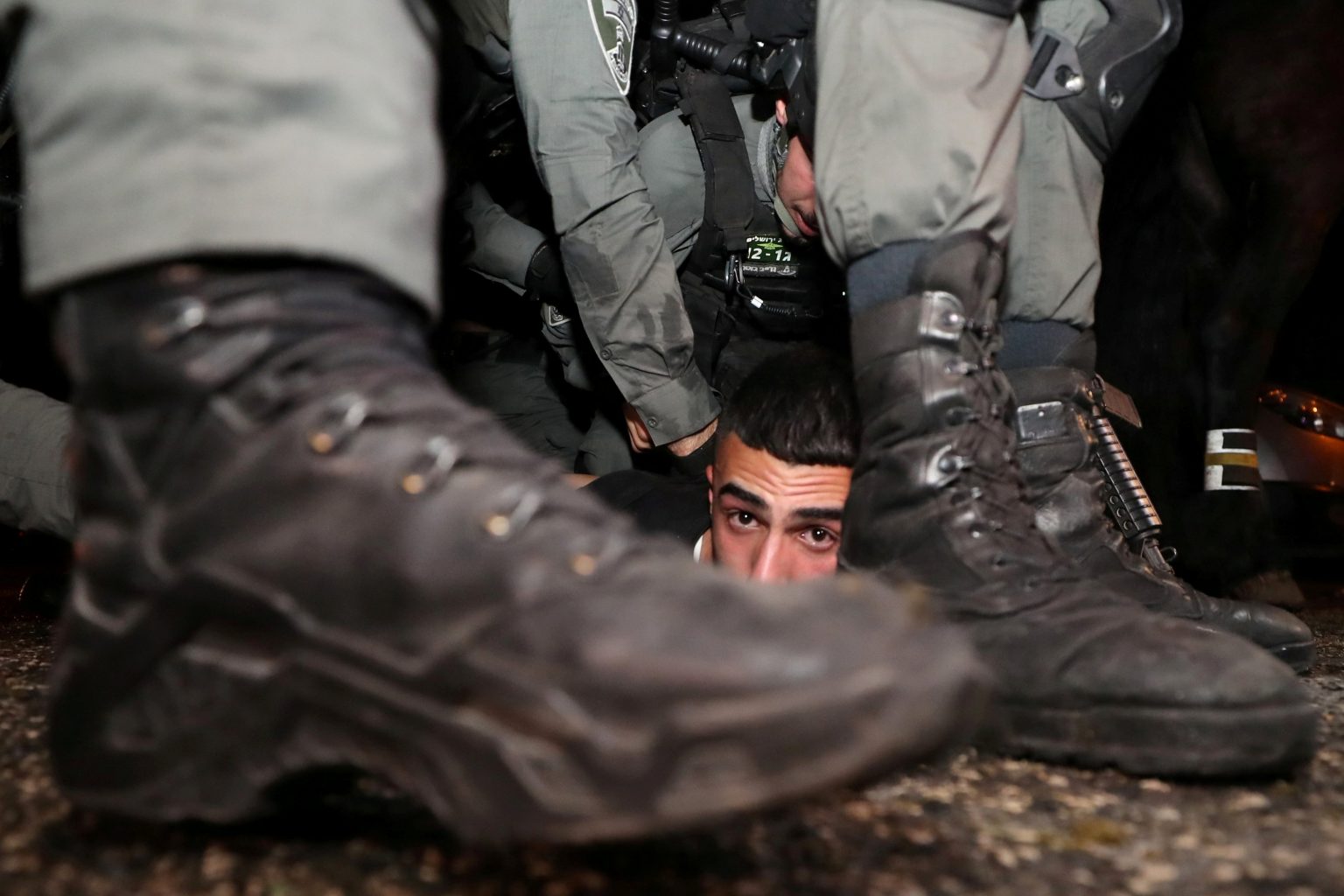
Israeli police arresting a Palestinian protestor amidst heated clashes over property rights between Palestinians and Israeli settlers in Sheikh Jarrah in East Jerusalem – 5 May 2021 (Reuters)
Digital activism, boosting universal solidarity
Factors that emboldened the populace
The younger generations inherited the responsibility of struggling for their Palestinian lands. Consequently, they came up with new mechanisms to channel the voice of their cause to the world. Social networking sites thus triggered a digital struggle through which recent happenings in Palestine occupied pages of influential social media users. This, in turn, urged some countries to make diplomatic efforts to realize calm and reach a ceasefire in the Gaza Strip.
These diplomatic efforts were catalyzed by popular activism that did not have the same momentum during the 2014 Israeli aggression against the Gaza Strip, hampered by the political conditions in several Arab countries, including Iraq, Syria, and Yemen, which captured the Arab and international attention back then.
The repressive policies of some Arab rulers against their people facilitated for passing of four new peace agreements with Israel without open popular protest, for such protest would have meant a rejection of these rulers’ will. However, the protests held in the past two weeks were against military escalation perpetrated by authorities recognized by the UN as an occupying power. This recognition emboldened the people, and protests, which ultimately pushed the Palestinian cause to the forefront once again, were also enabled by the decline in active combat in Syria, Yemen and other Arab countries that have been sites for security tensions.
Hashtag advocacy
Hashtags with Palestine-related keywords dominated social networking sites in the past two weeks, spreading further posts and digital content addressing the Sheikh Jarah case and turning the world’s eyes towards Palestine.
Hashtags are used to bring the largest number of users together around a certain issue to highlight it and present it to the public opinion with the aim of making a difference in the interest of a specific goal.
Usually, hashtags are used to promote collective issues, for advocacy and mobilization. Pertaining to the Palestinian cause, Arabic and English #savesheikhJarrah trended. This hashtag managed to garner interest, and consequently, make an influence because it used the affordances of the internet, including accessibility, effective search tools, and widescale spread.
The influence of hashtags in Western countries remains greater than in the Arab region because the culture of advocacy in the latter is still underdeveloped, where hashtags are sometimes used improperly and cut off their contexts, while only a few make it to the stage where they can lead to a change. Thus, backing the Arabic hashtag with its English version expanded the scope of influence and outreach.
Apps rating
As the Sheikh Jarah in occupied East Jerusalem gained momentum and the police violence turned into a military offensive against the Gaza Strip, social networking sites, such as Facebook, took a biased pro-Israel stance, despite claiming that they are offering a hate-free space.
Facebook deactivated or blocked hundreds of Palestinians’ accounts, through which users covered the reality of what was happening in Jerusalem and the Gaza Strip. The digital crackdown on users seeks to prevent Palestinians and advocates of the Palestinian cause of conveying the ongoing violations committed by the Israeli occupation.
In response, activists started a 1-star-rating campaign against Facebook App on Google Play and App Store.
As a result of the users’ interaction with this digital counter-action, Facebook’s rating fell to 2.4 on Google Play and 2.1 on App Store at the time of writing. The rating campaign seeks to bring Facebook’ users’ evaluation to one star, and ultimately taking the app down from stores.
According to Business of Apps, a website specialized in app-related reporting, evaluation of apps plays a major role in influencing users’ decision as whether to download an app or not.
A research paper by Appetentive demonstrates that 50% of users would not consider downloading a 3-star-app. The percentage goes down as far as 85% when it comes to 2-star-apps.
The research added that 77% of users read one review at least before downloading a free app.
To circumvent content censorship, users incorporated several tricks, such as writing without doting, or leaving spaces or punctuation marks between letters to obstruct matrixes from processing the content and thus evading restriction.
Celebrities and public figures taking a stand
When the American actor Marlon Brando declined the Oscar for his role in The God Father in 1973, the Native American actress Sacheen Littlefeather attended the ceremony on his behalf, stating that the actor “very regretfully” could not accept the award, as “he was protesting Hollywood’s portrayal of Native Americans in film.”
With the advent of social networking sites, garnering steadily increasing numbers of users, actors, artists and celebrities from various fields took to these platforms and apps to express their opinions and views of political and humanitarian issues.
Numerous world-renowned actors and footballers, especially those of Arab origins, expressed solidarity with Sheikh Jarrah and the Gaza Strip. Celebrity support boosts a certain issue’s chances to claim influence and solidarity, especially when followers consider celebrities as role models.
The worldwide shifts in public opinion about what is happening in occupied Palestine has contributed to urging more celebrities to express their opinion, to avoid backlash from their audience which demands that they define their position on heated issues. By responding, celebrities attempt to stay close to their audiences and the issues of importance to them.
This also helped to communicate the Palestinian issue to Western societies through celebrities and opinion leaders, and to present it in line with the logic that these societies embrace.
Celebrity accounts on social media form a huge human reservoir of millions of followers, who will all hear about an issue that interests celebrities or opinion leaders, when they do not hear of such issues from news that adheres to editorial policies that might ignore certain issues altogether.
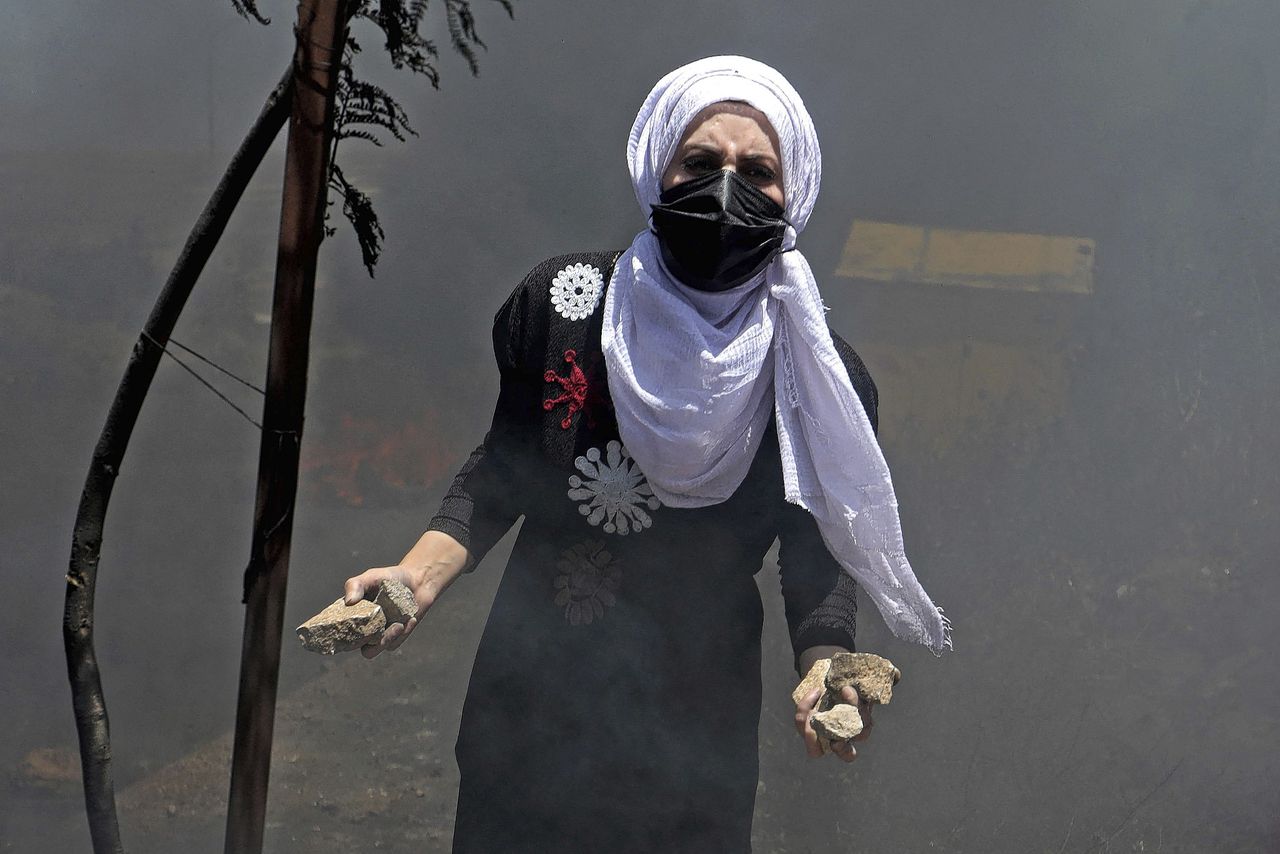
Palestinian protestor with stones in her hand amid heated clashes with the Israeli security forces near the Bet El settlement in the occupied West Bank – 18 May 2021 (AFP)
Why it is important to preserve housing and land rights
Story of the Sheikh Jarah case
The Israeli Central Court ordered the evacuation of several Palestinian real estates in the neighborhood that Jordan built to house Palestinians displaced in 1948 and had rent contracts that prove where their original places of residence are. The documents issued by the Jordanian Ministry of Interior addressed specifically the situation of 28 families displaced from the Sheihk Jarah neighborhood during the 1948 war.
In 1956, these 28 families reached an agreement with the Jordanian Ministry of Construction and Development and the United Nations Relief and Works Agency for Palestine Refugees in the Near East is a UN (UNRWA). The agreement provided for offering these families housing units in the Shiekh Jarah neighborhood.
Back then, the West Bank was under Jordanian rule (1951-1967).
According to Zakaray al-Awdeh, Coordinator with the Civic Coalition for Palestinian Rights in Jerusalem (CCPRJ), “the Jordanian government provided the land while UNRWA covered the cost for constructing 28 homes for these families.”
He added that “a contract was concluded between the Ministry of Construction and Reconstruction and Palestinian families in 1956, with one of the main conditions stating that the residents pay a symbolic fee, provided that ownership is transferred to the residents after three years from the completion of construction.”
On 29 April, the Jordanian Ministry of Foreign Affairs announced the ratification of 14 agreements. The ministry handed these documents to the Palestinian Ministry of Foreign Affairs to deliver them to the residents of Sheikh Jarah neighborhood in East Jerusalem. The documents complement several previous ones handed by Jordan to the Palestinian relevant authorities as to establish the neighborhood’s residents’ right over their lands and properties.
The leftist Israeli organization Peace Now said that the District Court’s rejection of the appeal of Palestinian home owners and ordering them to evict their properties is not a legal but a political story.
The organization described the court as “only the tool by which settlers use with the close assistance of state authorities to commit the crime of displacing an entire community and replacing it with settlement.”
The organization added that “the Israeli government and settlers have no problem to displace thousands of Palestinians in the name of “the Right of Return” to properties before 1948, while they strongly claim that the millions of Israelis living in Palestinian properties before 1948 cannot be evicted. Since the evacuation of the Mughrabi neighborhood for the purpose of expanding the Western Wall plaza in 1967, there has been no such deportation in Jerusalem.”
In 2009, according to Haaretz.com, attorneys of Palestinian families successfully obtained Ottoman documents that confirm false the claims of the Sephardic Leadership that “they had purchased the land before the war.”
The documents also prove that Palestinians are the owners of disputed land and houses in East Jerusalem. However, the court refused to acknowledge the documents, saying “they arrived late.”
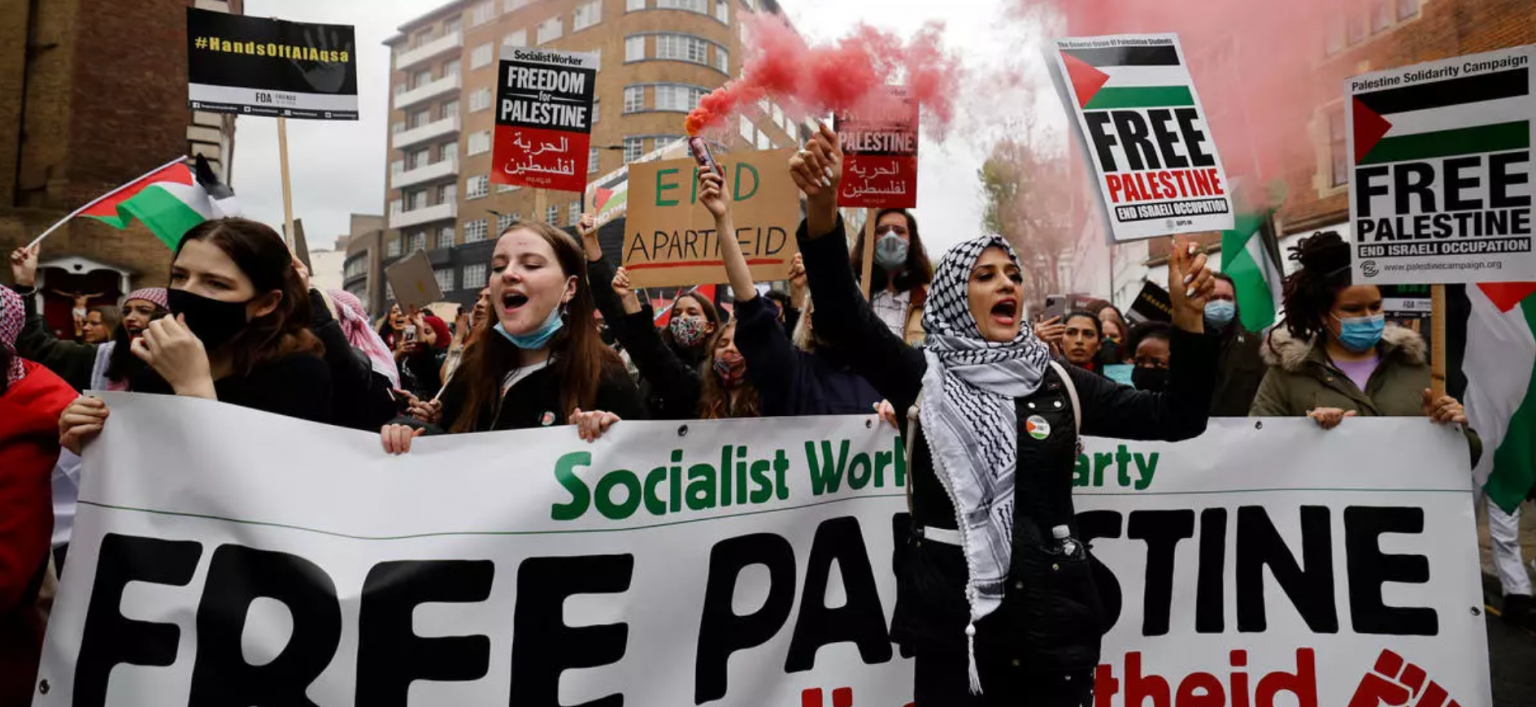
Activists and Palestine advocates holding Palestinian flags and smoke canisters in central London – 15 May 2021 (AFP).
International interests in recent Palestine upheavals
Corresponding to mounting tension regarding the Shiekh Jarah neighborhood, several Arab and regional countries, such as Turkey and Iran, adopted a sharper political tone. The extent of the political escalation varied from one country to the other so did goals and the methods of investment in the latest happenings in Palestine, governed by these countries’ past, present and future interests.
The recent reaction from these countries cannot be approached separately from their previous roles in the Palestinian cause and the impacts of that roles on the status of the Palestinian file, particularly with the divergent political lines along which these countries made their former and current investments.
The goals sought by the Syrian regime, Iran and Hezbollah are different from the goals of Russia and Turkey, or Arab countries such as Saudi Arabia and Qatar, which makes their investments quite distinct as well.
The Syrian regime, Iran and Hezbollah are promoted as advocates of the Palestinian resistance, despite continuous communication and negotiation rounds to hold a peace treaty and stop military operations on the border strip with the occupied territories.
For their part, the UAE, Sudan, Bahrain, and Morocco have normalized ties with Israel, following on Egypt’s steps that signed a peace deal with Israel since the 1970s.
Iran: resorting to chaos to gain political benefits
Hamas commanders have often been open about getting support from Iran and the Syrian regime over the past years. The same support has been thoroughly present in the regime and Iranian media, highlighting their advocacy of “resistance” in Gaza, which coincides with the lack of support from other Arab countries. Support from some parties and lack of support from others created some balance in the situation.
However, the Arab countries recently went from not supporting Hamas to normalization with Israel. Some of these countries were even setting the domestic stage for normalization, giving Iran an additional pretext for escalation at the expense of the Palestinian cause.
The regime, Iran and Hezbollah have the same position of the Palestinian cause, especially after the Iranian militias joined the regime in its war against the opposition, and the deployment of military points near the Syrian-Israeli borders.
Iran Wire mapped 51 military posts, operated by Iran and Hezbollah in southern Syria, including Damascus, rural Damascus, Quneitra, As Suwayda, and Daraa. 10 of these posts are set up in Daraa, near the border strip.
The Jusoor for Studies, for its part, located 247 sites of Iran and Hezbollah across Syria.
The Iraqi doctor in international relations, Omar Abdulsattar told Enab Baladi that Iran has one goal of its positions. “With negotiation, [Iran] always invokes a cycle of chaos. This happened with the Americans during their removal from Iraq.”
He added that Iran tries to press Israel, thus, the US by supporting Hamas to obtain political gains.
Abdulsattar said that Iran aims to punish Israel because it is against the policies of the Biden Administration, which is working to lift sanctions on Iran. Israel has also been targeting Iranian ships, bases and even nuclear facilities. The Iranian punishment was that “it preoccupied Israel with its own internal affairs and moved the war inside Israel.”
Last April, Israel attacked an Iranian ship in the Red Sea. According to a Wall Street Journal article on 12 March, this last attack was preceded by at least 12 similar assaults.
Furthermore, Israel constantly targets Iranian militias on Syrian territory, launching airstrikes on its military posts, especially in the southern region and the city of Al Bukamal.
Iran, through supporting chaos in Israel, aims to hit the latest chain of normalization deals between Arab countries and Israel. Iran fears the formation of a regional front against it, through which the Gulf countries would be banishing it from interfering in the Palestinian file.
Abdulsattar said that through missile attacks on Tel Aviv, Iran conveyed a message that it has a hold on the Palestinian cause, steering the Arab world to its advantage, not in favor of the US, Israel, or the four normalized-Arab countries, in addition to Saudi Arabia.
He added that Iran has been capable of achieving these goals and that Biden wants to sign understandings with Iran without any challenges. This Biden clearly expressed as he said that he closed the curtain on the 9/11 era of foreign policy, intending to embark on a new one.
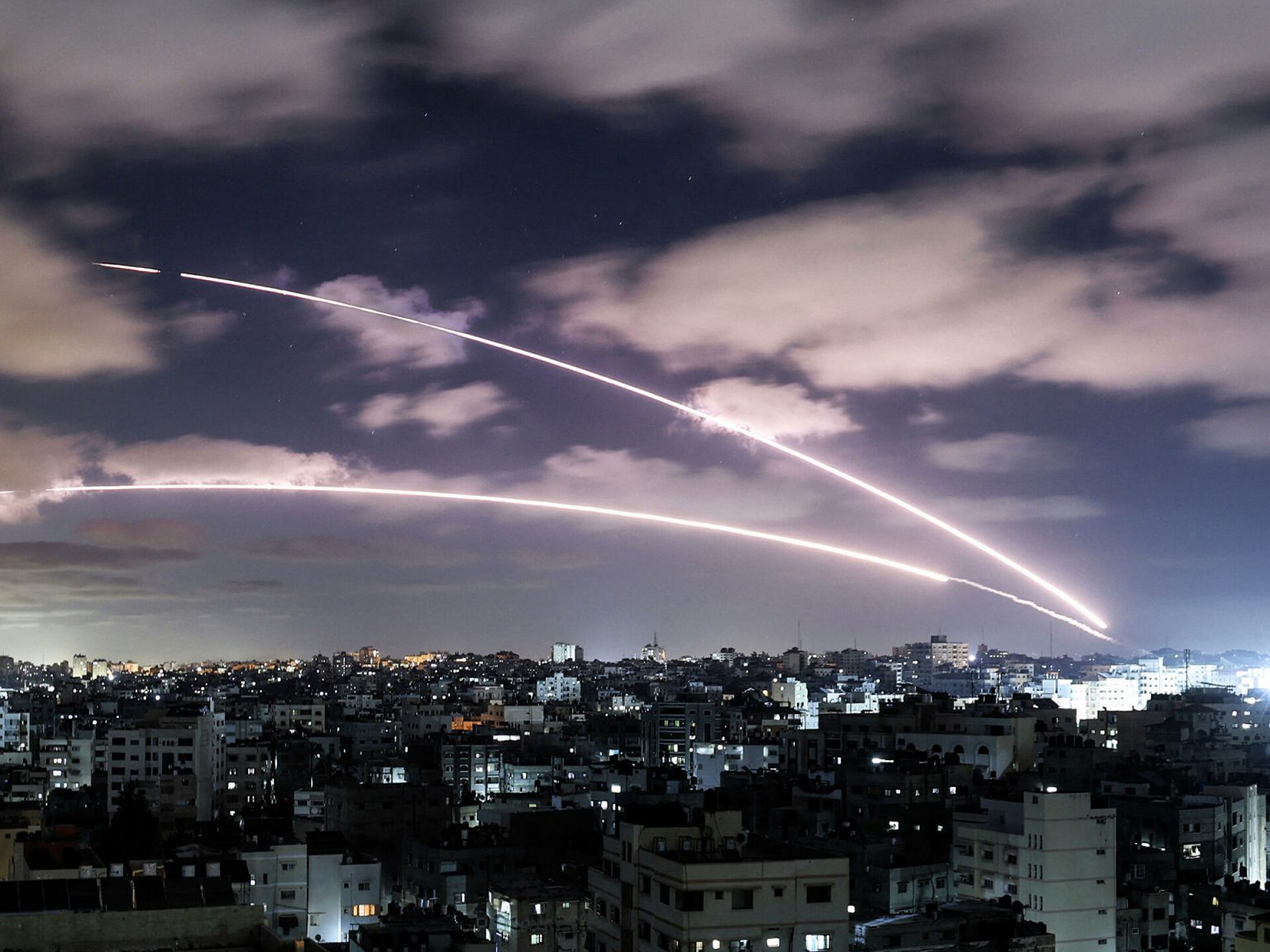
A rocket burst by Hamas launched from Gaza towards Israel, amidst the mounting Israeli-Palestinian violence —18 May 2021 (AFP).
Russia: Public statements different from the official position
The Syrian expert on Russian affairs, Mahmoud Hamza, told Enab Baladi that Russia’s position on the Palestinian issue is an extension of the position of the former Soviet Union which advocated for the establishment of the State of Israel. Embracing Israel, Russia also promotes the stand of the Palestinian people and backs their cause.
Even though a number of Arab countries are considered parties to the resistance axis, such as Syria and Egypt, during the era of Abdel Nasser, and Iraq, which was within the eastern socialist camp, these countries relied on the Soviet Union and later on Russia for weapon supplies.
According to Hamza, for the past 70 years, Russia or the Soviet Union did not do anything for the Palestinian issue relating to Israel’s continuing aggression against the Palestinians and usurping their lands. Russia only expresses concern or calls on Israel to stop building settlements in some cases and to give the Palestinian people their rights in keeping with United Nations resolutions, which Israel did not abide by.
As for its stand regarding the latest happenings in Palestine, Russia has responded from the premise that there must be a dialogue between Israel and the Palestinians, unity within Palestinian ranks. However, Russia cannot effectively act because the US must agree to that.
Hamza pointed that the Russian-Israeli relations are “excellent” and that there is a strategic cooperation between the two states, but Israel is only benefiting from Russia given it is other ally, the US president.
He added that the Russian local media provides a sympathetic Israeli coverage even though Israel has been shelling civilians in Gaza and have evicted families from their homes in Sheikh Jarah neighborhood.
Moreover, Jews in Russia were capable of expressing “massive solidarity” with Israel as a state under attack, holding rallies in a park in the center of the capital Moscow.
In return, Arab communities in Russia have applied to get permissions to hold protests or rallies in support of the Palestinian cause and against recent violence, but the Russian concerned authorities denied them approval. This, Hamza said, is the “best example to the way Russia is trading in the Palestinian cause. Earlier, Lavrov made statements that Israel’s security is a Russian priority.”
In a March researcher paper by the Al Jazeera Center for studies, the author argued that the Russia-Israel understandings are in the process of acquiring a new form, particularly the Russian-Israeli relations, following the Russian intervention in Syria alongside the regime in 2015. The Russian military intervention offered Israel “opportunities and challenges.”
The research’s premise is based on several indicators, including Israeli-Syrian communication mediated by Russia under the headline of “peace or normalization,” Russia’s excavating in cemeteries for the bodies of dead Israeli soldiers, as well as the Syrian prisoners, swap deal, in exchange for the release of an Israeli young woman.
Other indicators included the statements by the Russian Minister of Foreign Affairs, Sergey Lavrov. The minister asked Israel to report any security threats from Syria for Russia to address them, “because Russia does not want to use Syrian territories against Israel.”
Commenting on the potential roles to be played by a number of states in relation to the Palestinian cause in the upcoming phase, Abdulsattar said that it is unlikely that Qatar would have any role, for any party that Qatar sides with tends to lose, not to mention that the non-state era in Palestine is ending. A new era, one of the state of Palestine, is drawing in and Qatar is of no use here.
He added that, as a Gulf state’s objective, hitting Hamas in Gaza resembles eliminating the Muslim Brotherhood in Egypt. Should the Gulf countries start a dialogue with Hamas, the latter might get divided against itself.
To control Hamas’ position, Abdulsattar noted that Turkey might play a role identical to its intervention in Libya, with Gaza becoming a part of a political process inside Palestine between the Palestinian Authority (PA) and Hamas.
As for Russia, he said that Moscow will help Turkey and Saudi Arabia in achieving calm in Palestine through normalization between Hamas and the PA. Such normalization might pave the path for a Palestine-Israel normalization.
Normalization after Gaza war
Under the title, “Arab states split for first time on refusal to condemn Israel over Gaza,” the Guardian addressed the Islamic and Arab governmental position of the over 50-year-old cause.
The argument follows thus, “while some states with Muslim majorities, such as Turkey and Iran, have accused Israel of incitement at the al-Aqsa mosque and committing atrocities in Gaza, other countries that had followed suit during previous flare-ups have this time been more restrained.”
The Guardian adds that “the relative silence has been led by states that made peace with Israel in the last year of the Trump administration and are now standard bearers of the so-called Abraham Accords”.
The Palestinian cause “is not as popular as it once used to be”
Researcher Majed Aloush told Enab Baladi that the importance of the Palestinian cause has declined for almost all the Arab countries, whether those that opted for open normalization or others maintaining discrete relations and even those which still hold on to a serious anti-normalization stand.
Aloush said that the decline in interest in the Palestinian cause has various realistic reasons, notably the growth of some regional country’s powers and the collapse of others in the past two decades. These changes engaged the involved countries in intra-disputes over expansion and influence. These countries were forced to find alternative alliances to conduct attacks or defense.
The second reason is that the most active Palestinian forces have themselves engaged in the regional struggle.
He added that the resistance movements’ siding with the non-Arab regional axis, the Palestinian powers’ lack of national-patriotic dimensions, their efforts to receive support from the regional axis and integrating into its enterprises, in addition to these power’s fundamentalist religious structures of thought—which are, in one way or another, at odds with the recent general tendencies of emergent Arab countries; have all created an obvious distance between these powers and several Arab countries.
There is also the “irrational” stand that some of these powers adopted in approaching the Arab Spring revolutions, which gave the Palestinian cause a frail standing. More important than all these reasons, is the Palestinian vertical division, which presented Palestinians as incapable of independence.
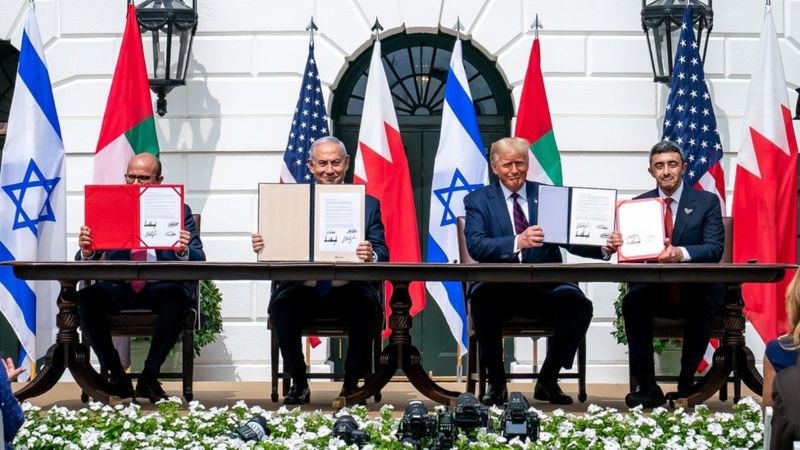
The official ceremony during which the UAE and Bahrain signed normalization deals with Israel — September 2020 (Getty)
War on Gaza will disrupt normalization
Aloush said that the current volatile situation in Palestine is likely to “disrupt” normalization between Israel and the majority of Arab countries. However, normalization will not stop or be canceled altogether.
He added that the violence in Gaza will probably have a limited influence, in relation to duration and efficiency, because normalization ties into the existing regional state of affairs.
Should the war linger, what will happen?
Aloush said that the war in Gaza will not linger because Hamas and other Islamic factions in Gaza have in advance agreed to a mutual ceasefire.
Additionally, Israel has not shown the urge to invade Gaza because it has already run out of goals there. Namely, the long-term war choice in Gaza does not seem to keep hold, even though it is still looming as sudden development of the situation.
In this context, Aloush said that normalized countries would press the warring parties into the solution, where neither is victorious.
In other words, these countries would opt for an initiative with general political guidelines and expressions liable to interpretation stretches in a manner that retains the prestige of the two sides and keep the situation open to change.
Israel has become a party to the raging regional struggle and before the new US policies that are based on holding allied regional powers, in the Gulf region, Europe, or East Asia, responsible for an essential part of international conflict costs and defense burdens.
Aloush attributed the new strategies to some regional countries’ willingness to utilize Israel’s technical, military, and most importantly, political power, whether through subjecting it to pressure or attracting it because the regional struggle has the potential for undergoing further escalation. Despite the current apparent decline in the conflict, given the Turkish-Egyptian-Saudi talks, or the Saudi-Iranian talks, the factors that led to the conflict still hold grounds and are open to investment by international powers.
Alosuh said that regional powers that normalized ties with Israel seek to reinforce these agreements through adding new dimensions, particularly given the modest Arab and regional popular reaction against normalization.
He added that the Palestinian enterprise itself must be forced to withdraw before Israel and shift from antagonism to friendliness or at least calm, even if through a number of the enterprise’s parties. This will offer Israel the chance to “auction” its embrace before the regional disputing powers, to see who shall claim it first.
Aloush believes that the regional conflict, including its Arab and non-Arb actors, will proceed, for neither of these actors can resolve it, adding that each of the parties will seek to find new allies. And given the regionally conflicting actors’ recurrent failure to build stable alliances, Israel will be a tempting option for all actors alike.
if you think the article contain wrong information or you have additional details Send Correction
النسخة العربية من المقال
-
Follow us :
Most viewed
- Al-Hijri escalates against Damascus: A "radical" government
- Governor of As-Suwayda signs understanding agreement with al-Hijri: Key details unveiled
- Turkey confirms continuation of its operations in northeastern Syria
- Al-Sharaa signs draft constitutional declaration
- Al-Sharaa forms National Security Council in Syria













 Edited by Enab Baladi
Edited by Enab Baladi





 A
A
A
A
A
A
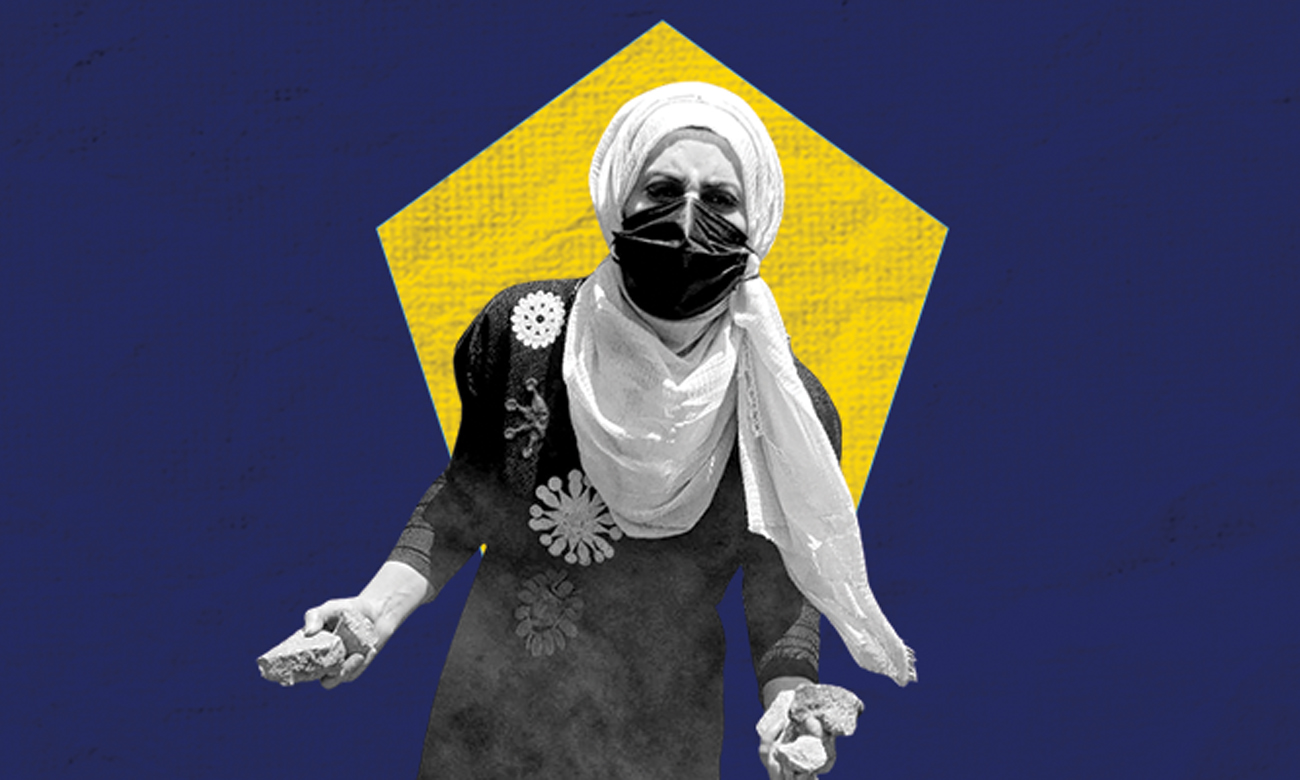
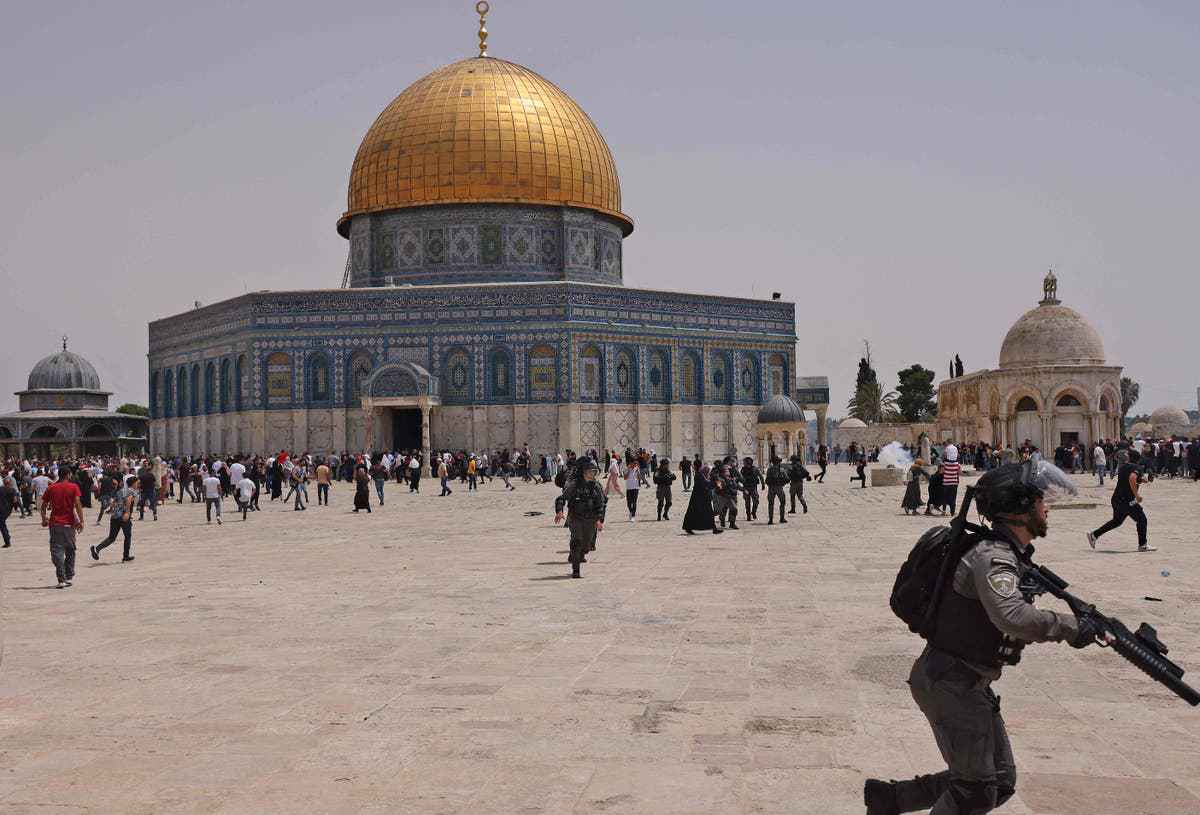



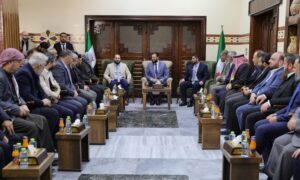
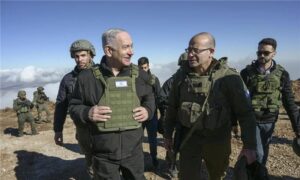
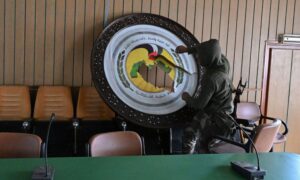
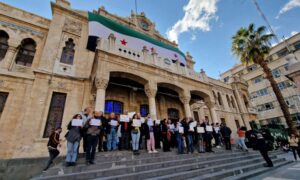
 More In-Depth
More In-Depth